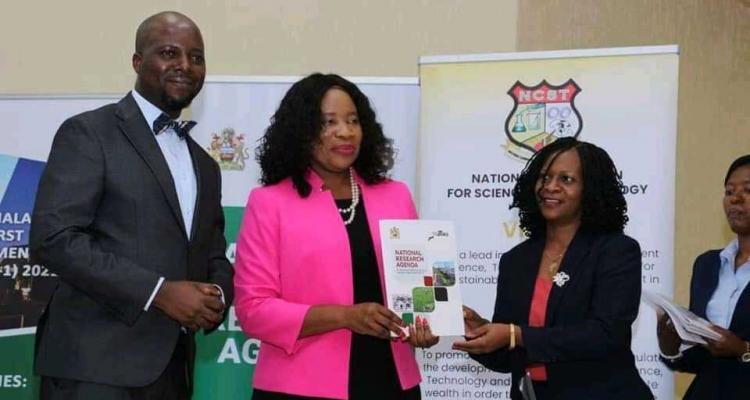
Minister of Education Madalitso Kambauwa-Wirima says the launch of the National Research Agenda signifies the great importance that the Government of Malawi attaches to research and development (R&D) and Science Technology and Innovation (STI) as critical drivers of the knowledge-based economy.
On 22 March 2023, the Malawi Government through the National Planning Commission (NPC) in collaboration with National Commission for Science and Technology (NSCT) launched its National Research Agenda to support the realisation of the Malawi 2063 vision through targeted research, technology and innovation.
The research agenda has been developed through close collaboration between the NPC and NCST with technical and financial support from Government and UNICEF.
Speaking after launching the National Research Agenda, Kambauwa-Wirima said it is high time the country started embracing and integrating research, science, technology and innovation in its development planning and the transformation process through MIP-1.
“The launch of the National Research Agenda today is a positive step towards narrowing this research and development expenditure gap if we are to attain an inclusively wealthy and lower middle income status by 2030,” explained Wirima.
According to Wirima, the NRA will prioritise activities that are critical to achieving the desired transformation of the Malawi economy through R&D investments and has been framed by the Malawian Research Ecosystem consultatively to solve locally demand driven challenges.
In his remarks, Director General for National Planning Commission Dr. Thomas Munthali said the National Research Agenda provides strategic and focused research, innovations and technologies that should propel Malawi to a desired future.
“The National Research Agenda provides a shopping ground for all actors in the research space to undertake focused and development responsive research that should spur innovation and technological development to help Malawi leap-frog into a knowledge-based economy that is key to the socioeconomic transformation Malawi aspires to achieve in the medium to long term, guided by our strategic development milestones by 2030 and 2063,” said Munthali.
He then appealed to the Government to consider increasing budgetary allocation for Research, Science and Technological development to ensure the prioritized research areas are operationalized enough to speed up Malawi’s growth and development towards wealth creation and self-reliance.
On her part, NCST Acting Director General Gift Kadzamira said the National Research Agenda is very important in a way that it will guide researchers, academic institutions, centres of excellence, local and foreign research and development stakeholders in generating knowledge, technologies and innovations that will build a knowledge based economy.
UNICEF Deputy Resident Representative Gerrit Maritz said Robust research and evaluative evidence shed light on new knowledge, helping to educate all segments of society.
He added that research is an essential constituent of the MIP to steer the country in reaching the vision 2063.
Follow us on Twitter:














